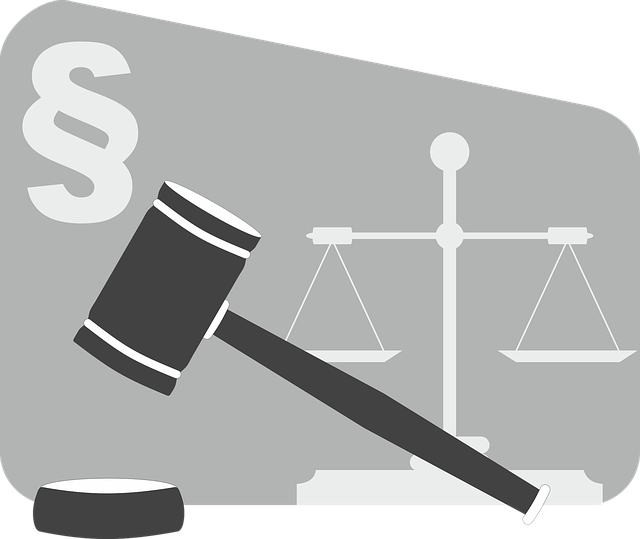The RF Securities Industry Regulation is a robust framework designed to uphold fairness and trust in financial markets by regulating securities firms and their employees. A key aspect of this regulation is safeguarding defendant rights during trials, ensuring ethical conduct, transparent reporting, and fair dispute resolution. Balancing regulatory enforcement with individual liberties is critical; skilled criminal defense lawyers play a vital role in protecting defendants' rights, preventing arbitrary measures, and promoting transparency in the securities market. Case studies highlight successful strategies for defending against white-collar charges, emphasizing the importance of admissible evidence, credible witnesses, and unbiased legal arguments. Effective navigation of trial complexities is essential to maintain judicial integrity while protecting all stakeholders' interests, including defendants.
The RF Securities Industry Regulation is a complex framework designed to ensure fairness, transparency, and protection in financial markets. This article delves into key aspects of this regulation, focusing on balancing regulatory needs with individual liberty, especially during trials. We explore how the system safeguards defendant rights while maintaining market integrity. Through case studies, we analyze successful implementations and potential challenges, highlighting best practices for a just and balanced securities trial process, with a particular emphasis on protecting defendant rights.
- Understanding RF Securities Industry Regulation: A Framework for Fairness
- Protecting Defendant Rights: Balancing Regulatory Needs and Individual Liberty
- Key Aspects of Trial Procedures in Secured Markets: Ensuring a Just Process
- Case Studies: Examining Successful Implementation and Potential Challenges
Understanding RF Securities Industry Regulation: A Framework for Fairness

The RF Securities Industry Regulation is a complex framework designed to ensure fairness and integrity within the financial markets. At its core, this regulation aims to protect investors by holding securities firms and their employees accountable for their actions. A robust regulatory system is essential in maintaining trust and stability in the industry, especially as it relates to protecting defendant rights during trial. This involves establishing clear guidelines on ethical conduct, transparent reporting, and fair dispute resolution processes.
By implementing these regulations, the industry can safeguard against various transgressions, including white-collar and economic crimes. A well-structured legal framework enables lawyers specializing in general criminal defense to mount winning challenging defense verdicts. This ensures that all parties involved are treated equitably, upholding the principles of justice while mitigating potential biases or unfair advantages that could skew trial outcomes.
Protecting Defendant Rights: Balancing Regulatory Needs and Individual Liberty

In the realm of RF Securities Industry Regulation, balancing regulatory needs with protecting defendant rights during trial is a delicate act. While robust regulation is essential to maintain fair markets and safeguard investors, it must also respect individual liberty and due process. Achieving extraordinary results in this balance ensures that both market integrity and the rights of those accused are preserved. This dual mandate is particularly crucial within the dynamic landscape of financial sectors, where complex transactions and high-stakes disputes are commonplace.
General criminal defense strategies play a vital role in navigating these regulatory waters. Skilled attorneys focus on ensuring their clients’ rights are not infringed upon, enabling them to mount robust defenses. By understanding the intricate web of regulations and their potential implications, these legal professionals can protect their clients from arbitrary or overly restrictive measures. This approach fosters a symbiotic relationship between effective regulation and philanthropic and political communities, where transparency, accountability, and fair practices thrive, ultimately contributing to a more resilient and trustworthy securities market.
Key Aspects of Trial Procedures in Secured Markets: Ensuring a Just Process

In secured markets, trial procedures play a pivotal role in maintaining fairness and justice. The process must ensure that all parties, particularly defendants facing white collar and economic crimes, have their rights protected. This involves meticulous handling at every stage, from the initial investigative phase through to enforcement. A just trial is one where evidence is admissible, witnesses are credible, and legal arguments are considered without bias.
Defending against white collar defense charges requires a comprehensive strategy that accounts for potential gaps or flaws in the prosecution’s case. This includes challenging the admissibility of evidence, questioning witness testimonies, and presenting alternative interpretations of facts. By navigating these complexities, defendants can safeguard their rights and ensure a fair outcome, even in the face of substantial charges.
Case Studies: Examining Successful Implementation and Potential Challenges

In the realm of RF Securities Industry Regulation, case studies offer a window into the successful implementation and potential challenges that arise in protecting defendant rights during trial. These real-world examples highlight best practices that have proven effective in navigating complex legal landscapes. For instance, many successful implementations involve robust defense strategies tailored to the respective business models, ensuring fair representation for all parties involved. By studying these cases, regulators can identify patterns and develop guidelines that balance investor protection with the rights of defendants, fostering a more equitable market environment.
However, potential challenges also emerge, particularly in jury trials where public perception can significantly influence outcomes. Navigating media scrutiny and managing client expectations requires meticulous planning and strategic communication. Understanding these complexities is crucial for both regulatory bodies and legal professionals, as they strive to uphold the integrity of the judicial process while safeguarding the interests of all stakeholders, including protecting defendant rights during trial.
The regulation of the RF Securities industry requires a delicate balance between ensuring fairness and protecting individual liberties. By understanding the key aspects of trial procedures and examining successful implementations, we can strengthen the regulatory framework. Specifically, focusing on protecting defendant rights during trials is crucial to maintaining a just process. As demonstrated through case studies, navigating these complexities demands continuous evaluation and adaptation to meet the evolving needs of the market while safeguarding fundamental freedoms.






